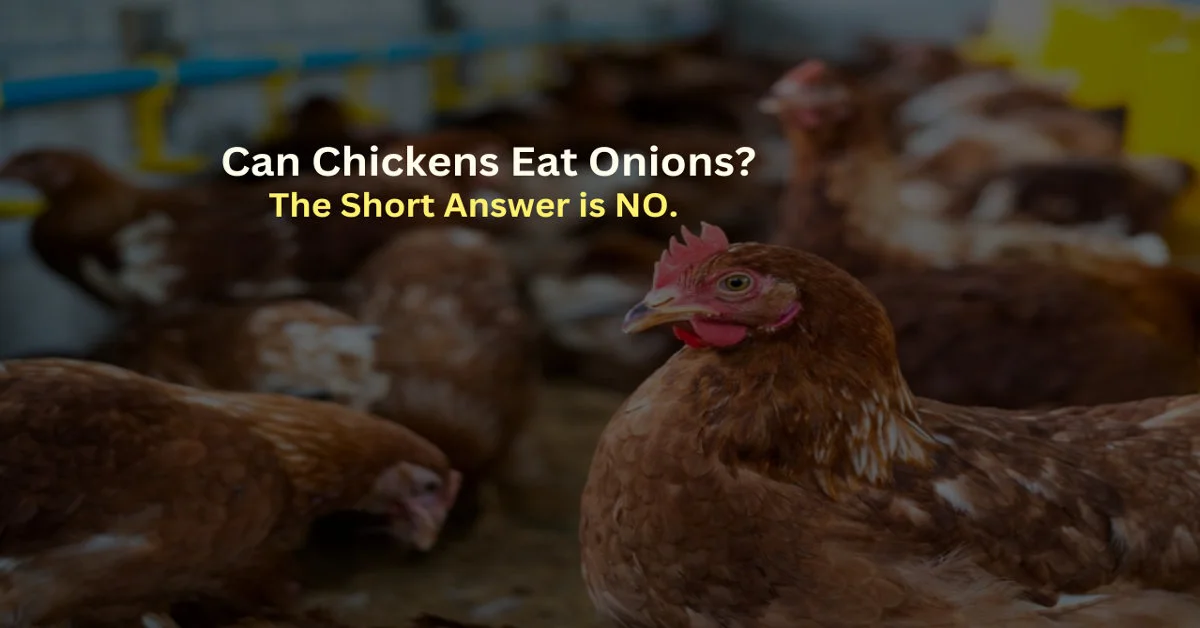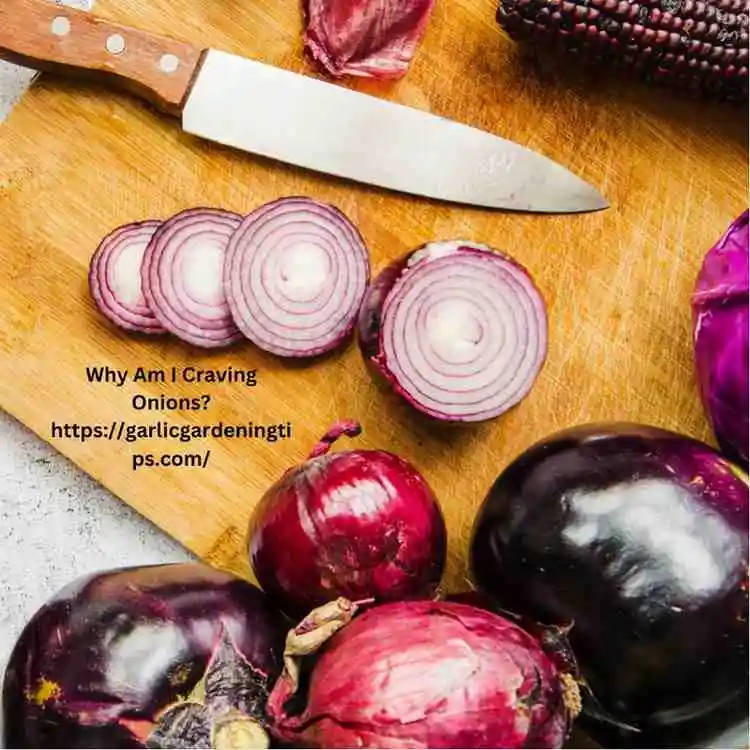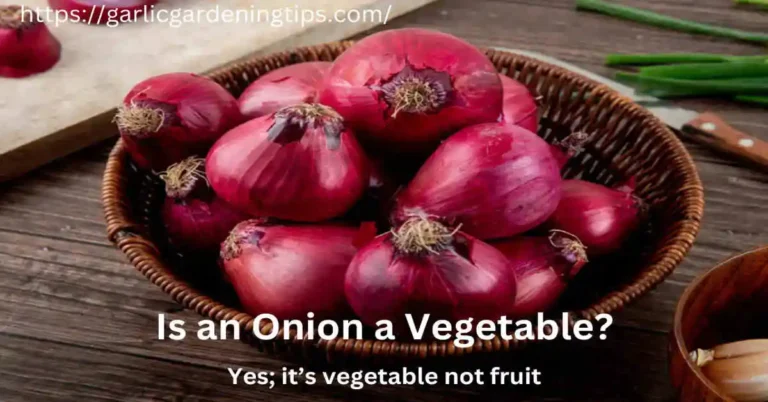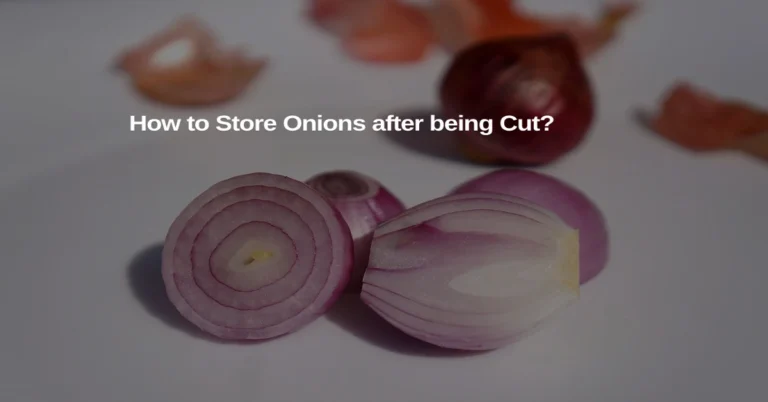Can Chickens Eat Onions? Safe or Risky?
If you are raising chickens, you have likely noticed that they are always eager to eat whatever scraps they find. While they have a natural ability to know what’s good for them, all scraping foods are not safe for chickens. So it is really important for every backyard chicken keeper to know how to keep chickens healthy and happy.
In this blog post, we are going to answer a common question that is always asked by backyard chicken keepers: “Can Chickens Eat Onions?” And what are the risks of feeding onions to chickens?, and find out if onions are a healthy treat for your beloved chicken? So let’s fuel you up with all the information you need about onions for chickens.
Can Chickens Have Onions? – Quick Answer
The short answer is NO; chickens shouldn’t eat onions. As Onions (Raw or Cooked) are rich in an organosulfur compound (chemical) that breaks down into various forms of disulphide. Disulfides are oxidising agents that can cause the rupture of red blood cells in poultry, ultimately resulting in anemia, diarrhea, lethargy, breathing difficulties and muscle weakness.
However, some chicken owners (BYC) want to feed onions to their flock in small amounts; it’s not generally recommended. You must avoid them completely and choose other healthy treats. Keep your chickens healthy by staying away from onions.
According to the happy chicken coop , Onions are safe for flocks if they don’t consume more than 0.5% of their body weight. Excess consumption can cause harmful effect. However, they do provide some beneficial nutrients. So, if you still want to give onions to your chickens, that completely depends on you, but be cautious.
See more: Can Dogs Have Garlic? Find out if garlic is safe for your doggie.
Are Onions Safe for Chickens?
When it comes to the chicken’s digestive system, it is totally different from a human’s digestive system. This means that food that is good for humans may be bad for chickens. The same is true for giving onions to chickens. Onions, when consumed in large quantity by the chickens, can cause the release of certain toxins that can be harmful to them.
Onions can be a tasty addition to our meals, but they are not good for chickens. They contain chemical compounds such as thiosulphate, which can be toxic to chickens when taken in large quantity. Having raised my own chickens poultry farm, I have learned and experienced to keep them away from onions to avoid any health issues.
Symptoms of Onion Toxicity in Chicken
As discussed above, onions are not safe for chickens, so it is crucial to know the potential risks associated with feeding them. Some possible side effects of excess onion consumption include:
1. Diarrhea
Excess consumption of onions may lead chickens to several health issues. Diarrhea is the most common health issue that is found in chickens due to over-consumption of onions. This scrape actually irritates the digestive system, resulting in frequent and watery stools. This can lead to dehydration if not managed immediately.
2. Lethargy
Onions toxity can also cause chickens to become lazy, inactive, and unusually tired. They will reflect a noticeable lack of energy and enthusiasm for their usual activities.
3. Respiratory Distress
Onions can also affect a chicken’s respiratory system. This can lead chickens to breathing problems, like wheezing or gasping, which can be distressing for a bird. If your chickens show these symptoms, it’s mandatory to consult a vet.
4. Weakness
Overconsumption of onions can lead to serious muscle weakness. It can make it difficult to even stand, walk, or perform normal functions, potentially compromising their overall health.
5. Pale Combs and Wattles
You might also observe pale combs and wattles in your chickens, indicating a reduction in red blood cells and potential anemia. This is visible through paler-than-usual combs and wattles, indicating poor blood circulation and oxygenation.
6. Reduced Egg Production
In severe cases, chickens may experience a decrease in egg production. This is negative impact on their health, well-being and chicken’s egg production.
Tips
If you observe any symptoms in your chickens after they have eaten onions, the first thing to do is to take away onions from their reach. That will definitely save them from ingesting more onions. Secondly, consult with a veterinarian or experienced chicken keeper for further guidance.
How Onions Impact on Chickens’ Health?
You might seem like a harmless treat, but they can be quite harmful to your chickens. While onions have some beneficial nutrients, they contain a compound that is called N-propyl disulfide, which can cause oxidative damage to red blood cells and lead to Heinz body anemia.
Heinz body anemia can cause weakness and lethargy in chickens. In severe cases, it can damage organs and even cause death. The severity of the conditions can depend on factors such as the amount of onions ingested , the chicken’s age and overall health and whether the onions are cooked or raw.
Short-Term Effects of Onion Consumption
Onions contain chemical compounds such as thiosulphate, which can be toxic to chickens. Toxicity level depends upon how much onion quantity is consumed. Toxicity can result from ingesting large amounts of onions over a prolonged period of time. Fortunately, consuming small amounts of onion at once is rarely a problem because red blood cells are continuously replaced. So don’t worry if it’s a one-time instance in little quantities!
Long-Term Effects of Onion Consumption
It’s important to understand that continuous consumption of onions can weaken your chickens, and also make them more susceptible to getting various diseases and infections. Hence, it would be good practice to feed them healthy alternatives like fruits and vegetables instead of feeding them onions. This ensures your chickens remain productive and in good health.
So, finally, we got the answer to our query that onions are not a suitable treat for chickens. Let’s find out which alternatives are good for chickens. So, you can feed your chickens safe and healthy treats.
Safe Onion Alternatives for Chickens
As you know, chickens are omnivores; therefore, they can eat a variety of foods. It is essential to provide them a balanced and nutrient-rich diet that includes protein, carbohydrates, fat, vitamins, and minerals.
Here’s what chicks eat:
- Seeds and grains
- Fruits and vegetables
- Insects and worms
- Small animals like frogs, mice, and snakes
- Kitchen scraps and table scraps (in moderation)
- Commercial chicken feed (which should be their main source of nutrition)
Conclusion
Onions may be a great delicacy for humans, but they can’t be good for chickens. The toxic compounds in onions can lead to serious health issues for chickens, such as anemia and digestive issues. Therefore, for making your flock healthy and happy, it is mandatory to keep them away from onions. Stick to safe and nutritious alternatives like fruits, vegetables, and high-quality commercial feed. By making suitable food choices, you can ensure your chickens thrive.
For more detail about gardening-related queries, regularly visit our blog.
FAQs
Q1. Can Chickens Have Tomatoes?
Yes, ripe and red tomatoes are safe for chickens. While unripe tomatoes, green part, leaves, and stems of the tomato plant are toxic to chickens because they contain a toxic substance called solanine. So, ensure you are only offering ripe tomatoes, and your chickens will likely enjoy this juicy treat.
Q2. Are Onions Safe For Chicks in Winter?
The toxicity of onions to chickens does not change. Whether it’s winter, spring, summer, or fall, onions are Dangerous to chickens due to the toxic compounds they contain.
Q3. Is Onion Powder a Safe Treat for Chickens?
No, onion powder also contains the same toxic compounds that a fresh onion has. Therefore it is highly recommended to avoid chickens from onion powder.






